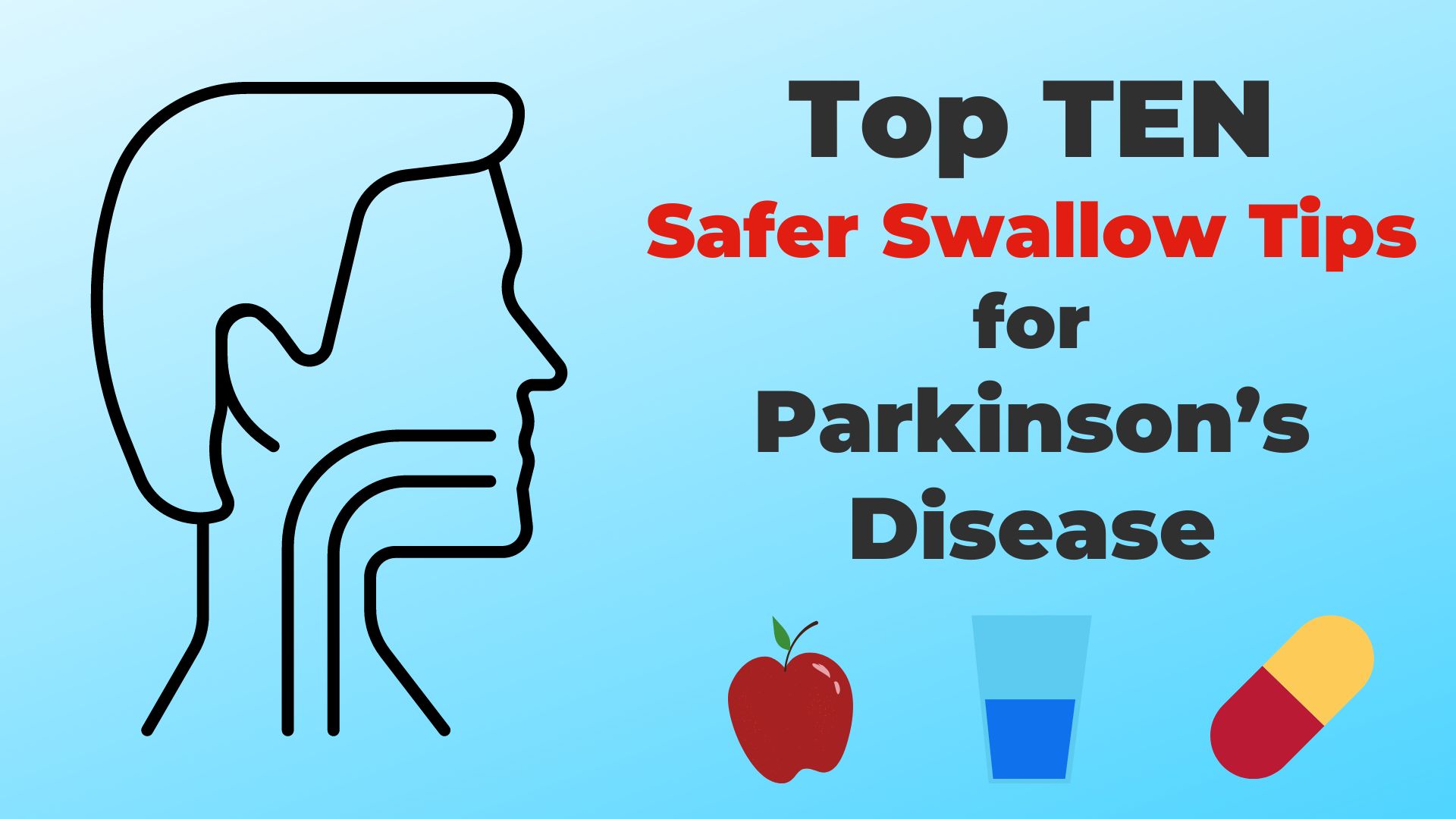
Safe Swallowing Strategies for Parkinson’s Disease
In this article we’ll explore ten safe swallowing strategies for those living with Parkinson’s disease. Difficulty swallowing is a common but often underestimated challenge when navigating life with PD. Known medically as dysphagia, this condition can lead to a higher risk of aspiration pneumonia, a potentially serious complication. However, with the right strategies and habits, you can significantly reduce the risks associated with swallowing difficulties. Let’s explore the top ten safe swallowing strategies for individuals with Parkinson’s disease.
1. Seek a Clinical Swallowing Assessment
Anyone experiencing swallowing difficulties, whether due to Parkinson’s disease or any other condition, should seek out a clinical swallowing assessment with a speech-language pathologist (SLP). SLPs are specially trained to manage swallowing impairments and can provide personalized recommendations and therapies to address your unique needs.
2. Maintain Excellent Oral Hygiene
Implementing diligent oral care is one of the most important habits to lower your risk of aspiration pneumonia. Keeping your mouth clean and healthy helps prevent mouth bacteria from entering your lungs and causing infections. Did you know that the real culprit for aspiration pneumonia is not the food or liquid entering the lungs; it’s the mouth bacteria that hitch a ride with them? To combat this, make it a habit to brush your teeth and swish with alcohol-free mouthwash both before and after meals. A cleaner mouth translates to healthier lungs.
3. Optimal Seating
Ensure you are seated optimally for a meal, ideally fully upright in a chair. This position promotes better control over your food and minimizes the risk of choking.
4. Minimize Distractions
During mealtime, avoid distractions and refrain from talking when food or fluid is in your mouth. Focus on the task at hand to prevent accidental aspiration.
5. Slight Chin Tuck Position
When chewing food, tip your chin slightly down. Gravity will help to keep food and liquid at the front of your mouth and help to reduce premature spillage into your throat before you are ready to swallow. When swallowing fluids, try a slightly deeper chin tuck. This maneuver may help close the airway tighter during the swallow, reducing the risk of fluids going down the wrong way.
6. Small Bites and Careful Chewing
Take small bites and chew your food carefully. This not only aids in digestion but also makes it easier to manage your food in your mouth before swallowing.
7. Choose Moist and Cohesive Foods
Choose foods that are moist and cohesive. Fibrous or granular foods, such as celery, pineapple, dry seeds, nuts, granola, dry rice, and crumbly biscuits or crackers, can be challenging to control and swallow.
8. Be Cautious with Two-Textured Foods
Two-textured or “mixed-textured” foods, like chicken noodle soup or cereal with milk, require extra caution. These foods challenge your mouth to manage both solid and liquid components simultaneously, increasing the risk of choking or aspiration.
9. Sip Liquids Wisely
When drinking liquids, ensure your mouth is completely clear of food. This practice avoids the simultaneous presence of solids and liquids in your mouth, reducing the risk of aspiration.
10. Be Mindful of Parkinson “OFF” Periods
Start to track when your Parkinson medication “off” periods are as mouth control and swallow timeliness may be more impaired. At these times of the day choose easier to swallow foods such as smooth cream soups, puddings or soft moist casseroles.
While Parkinson’s disease may bring its share of challenges, adopting these ten safe swallowing strategies can significantly improve your quality of life and reduce the risk of aspiration pneumonia. Remember, seeking professional guidance through a clinical swallowing assessment is the first and most crucial step towards managing swallowing difficulties effectively. By implementing these strategies and maintaining good oral hygiene, you can enjoy safer and more comfortable meals while safeguarding your lung health. A cleaner mouth truly does equal healthier lungs.
